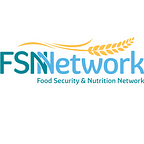RKSM 2023 in Review: Allowing Localization and Transformative Change for Humanitarian-Development-Peace Coherent Programming to Succeed!
By: Naomi Ayot Oyaro, Charter for Change Working Group Uganda
The humanitarian system needs to change. We know this. It’s too top-down. It struggles to cope with multifaceted crises and development needs. We’ve committed to localizing aid and working across the humanitarian, development, and peace (HDP) nexus. So how can we do so, together?
In May 2023, I attended the Regional Knowledge Sharing Meeting: Greater Horn of Africa (RKSM) focusing on HDP coherence in food crisis contexts in Naivasha, Kenya. As a representative of the Charter for Change Working Group Uganda (C4C) — an initiative working to shift power to local actors in humanitarian response — I saw this as a great opportunity to advance advocacy for practical localization and strengthen my knowledge of HDP coherence.
With over 200 participants from across the region, the conference convened local, national, and international actors at the forefront of HDP programming. For just under a week, I collaborated closely with other practitioners, exploring key issues and opportunities surrounding HDP coherence and transition approaches. Through plenary and breakout sessions, I participated in innovative and educational discussions designed to highlight effective program management. I was particularly compelled by conversations around increasing donor intentionality, accessibility, and equity, and the need for these funders to prioritize localized programming in contexts where HDP coherence is most critical. Digital platforms and tools, such as AHA Slides, made learning interactive and engaging in real-time. A WhatsApp-based course thoughtfully engaged me on HDP coherence and introduced the conference’s thematic areas before arriving at the RKSM.
Most importantly, the sessions were thought-provoking and creative, while still allowing participants to meaningfully interact and identify key takeaways. Focused country sessions enabled my peers and me to plan what learning we will apply at the national level. These are some of the themes that stood out:
- Utilize existing platforms to advance the localization agenda for successful HDP coherent programming.
- Ensure that peace is mainstreamed within HDP approaches while appreciating the current context on the ground.
- Center community needs in programming rather than employing a top-down approach, to ensure the right stakeholders are involved.
- Work towards country-level digital mapping of local actors into the Settlement Level Actor Mapping tool for coordinated and meaningful support of affected communities within the HDP nexus. Digital mapping is critical for coordination, assessments, and joint action planning, and must cover both refugee settlements and other communities, especially in crisis-prone areas like Karamoja and eastern Uganda.
- Donors should be more accessible, explicit, intentional, and demand direct collaboration with local actors with clear, measurable deliverables.
The RKSM highlighted the critical need to move beyond using localization as a buzzword and to empowering local and national actors to take a central role in HDP programming. Curated sessions demonstrated the value of coordination and joint planning with local actors and how existing platforms — rich in shared expertise, experience, and knowledgecan help drive localization efforts forward. For example, after the RKSM C4C began to conduct geographic information system mapping of local and national actors in humanitarian and disaster-prone areas of Uganda. This will inform planning and collaboration, and establish a network of local and national NGOs to leverage partnerships and coordinate responses.
It’s time the humanitarian system worked for the people it serves. Localization and collaboration are at the heart of this. With increasingly complex crises and growing needs, implementers and communities must work in tandem to ensure effective HDP programming. The RKSM gave actors from across the region more tools and time to plan how to move toward these goals. I’m ready to take the next steps. Let’s get to work!
Learn more about the Regional Knowledge Sharing Meeting: Greater Horn of Africa here.
Check out the second blog from the RKSM: Great Horn of Africa:
